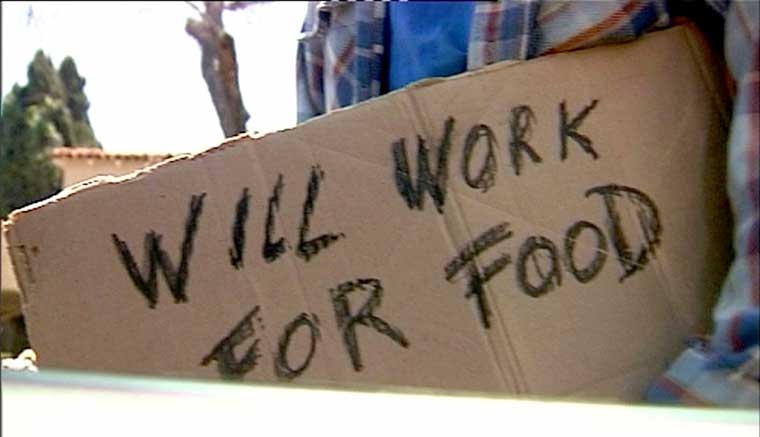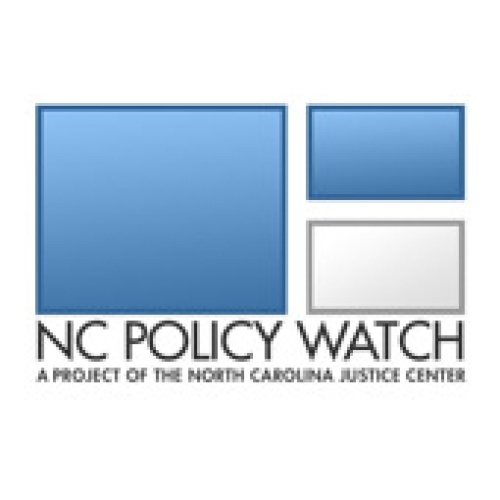Shining a light on one of North Carolina's dirtiest secrets

By Rob Schofield, N.C. Policy Watch
According to the folks on Right-wing Avenue, there really aren't many (if any) poor people in North Carolina. You know this rap -- it's the one in which comfortable pontificators in Washington and Raleigh confidently inform us that a family can't be "poor" if its members have access to luxuries like a bathroom, an oven and a telephone.
Of course, anyone with a pair of eyes and a modicum of common sense knows this is baloney. Laying aside the fact that there are obviously thousands upon thousands of homeless men, women and children who lack even these lavish extravagances, the hard and undeniable truth is that there are hundreds of thousands of people in this state who have a place to get in out of the cold but who still subsist on incomes that are well-below below the pathetically inadequate marker known as the "federal poverty line" (around $22,000 per year for a family of four). A large percentage of these people are children. Many others are working adults.
Think about that number for a minute. Imagine trying to put together a budget in which four people survive on the munificent sum of $424 per week. Mind you, that is an amount at which the federal government says they would not be "poor."
Now, think about the following, courtesy of the researchers at the N.C. Budget and Tax Center:
* Nearly 1 in 5 North Carolinians lived in poverty in 2010. That is roughly the same percent of the state’s population that was struggling with economic hardship in 1969.
* Approximately 1 in 4 African-Americans and 1 in 3 Latinos lived in poverty.
* Job loss, high unemployment and low earnings combined with underinvestment in the institutions that support opportunity are driving economic hardship in communities across the state. African-Americans, for example, in 2010 had a joblessness rate of 17.4 percent – nearly 7 percentage points above the state average of 10.5 percent for that year.
* High and persistent poverty impacts families and their communities. For children especially, growing up in poverty has lifetime consequences. In North Carolina, 40.2 percent of African American children and 42.6 percent of Latino children lived in poverty.
* Educational achievement suffers in these conditions of economic hardship and underinvestment. For every 5 students in North Carolina who enter high school, four years later only 4 of them graduated. For Latinos the graduation rate after four years is 68.8 percent and for African-American students the graduation rate is 71.5 percent.
* Poverty impacts not only quality of life but also longevity. The average African-American in North Carolina lives 6.5 fewer years than the average white North Carolinian.
The need for myth-busting
Ah, but what about all those amazing freebies that the poor receive? You know: all that fabulous "welfare" swag -- things like food stamps and housing and health care subsidies. That’s takes big bite out of the number, right?
Well, actually no, it doesn't. Sure, public safety net programs are important and do make a crtical difference. But they do not for the most part lift people out of poverty -- especially given the inadequacy of the official poverty level itself. A mound of recent Census Bureau analysis confirms this.
No, the cold, hard truth is that no matter how one manipulates the numbers, the ranks of poor people have been swelling dramatically in recent years as a result of the Great Recession.
Of course, some people will never be convinced by the data. Like the bloviating denizens of right-wing radio, the conservative ivory towers and North Carolina's Republican political leadership, they'll dredge up anecdotes about low income individuals who have made poor choices with respect to their education or their jobs or their personal relationships (as if people of means never followed such paths). Then they'll claim that most low income people are secretly raking in all kinds of under-the-table income that isn't reflected in the statistics (though they never really explain where it comes from) or dishonestly signing their children up for exciting perks like reduced price school lunches.
These myths can, of course, be readily dispelled in most communities by a simple trip to a struggling neighborhood, social service office, women's shelter or urban house of worship. Unfortunately, for a variety of reasons (fear, sloth, the presence of ideological blinders) most people will not make these trips.
The Truth and Hope Tour
This week, in a sincere effort to respond to the stubborn and widespread unwillingness in our society to confront and see the poverty all around us, advocates at the state NAACP, the UNC Center on Poverty, Work and Opportunity and the N.C. Justice Center announced a new effort to shine a bright light on the issue. They're calling it the "Truth and Hope Tour of Poverty in North Carolina."
Here's how the Rev. William Barber of the NAACP described the objective of the effort (which will begin this week with series of "listening sessions" in poor communities of the state's impoverished northeast, followed by a bus tour of some of the same areas later in the month):
"We want to shine the light of truth on the conditions of poverty and despair in North Carolina. We have faith there are leaders in our government, our media, our churches, and our schools who believe in the North Carolina Constitution's clear mandate that our 'Government is instituted solely for the good of the whole.' When our leaders act on that belief, a tidal wave of hope can come right behind the tornadoes of economic despair, creating a powerful new wave of economic and spiritual investment in Eastern North Carolina."
Professor Gene Nichol, head of the UNC Poverty Center, put it this way:
"The scourge of poverty in North Carolina is both our largest policy challenge and our greatest sin against constitutional principle. We seek to shine a light through this tour on the huge gap between our words and our deeds."
In short, Barber, Nichol and their allies have decided to call the bluff of right-wing ideologues; to confront the widespread myth making and denial that afflicts our public debate by forcing North Carolinians to look at and see the reality that surrounds them.
Forty-plus years ago, Senator Robert Kennedy drew a great deal of public attention and promoted several important policy changes by dragging a segment of the news media of his time on a tour of rural poverty in America. It’s clear that modern North Carolina advocates aspire to pull off a similar feat.
It is a welcome and sadly necessary development.
Tags
NC Policy Watch
A project of the N.C. Justice Center, N.C. Policy Watch is a news and commentary outlet dedicated to informing the public and elected officials as they debate important issues and to improving the quality of life for all North Carolinians.
